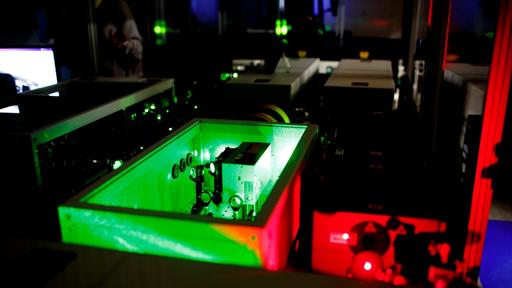Researchers from the FAU Solar, and the University of Alberta have made significant progress in developing singlet fission materials for the harnessing of solar energy in next-generation solar cells.
In a recent study led by Prof. Dirk M. Guldi and Prof. Rik R. Tykwinski, a novel hexameric pentacene system was engineered to achieve notably increased yields of free triplets, while, concomitantly, maintaining fast triplet formation rates. This seemingly contradictory behavior was made possible by combining the favorable attributes of discrete dimers with those found in solid-state materials.
Conventional silicon solar cells are subject to various loss processes restricting conversion efficiencies to 33%. In stark contrast, novel solar cells leveraging the singlet fission (SF) process have the potential to exceed this limit, reaching efficiencies up to 45%. The remarkable increase stems from the ability to generate two triplet excitons, that is, charge carriers, per absorbed photon.
The research not only enhances our understanding of molecular engineering for SF materials but also opens doors for succesfully implementing these materials in solar cell technologies. By overcoming limitations of previous covalent SF materials, this innovative design strategy could lead to solar cells that convert sunlight into electricity with significantly reduced energy loss.
The findings of this study, published in Angewandte Chemie under the title “Intramolecular Triplet Diffusion Facilitates Triplet Dissociation in a Pentacene Hexamer” also being a back cover of the Issue 8, provide valuable insights for the future development of even more efficient singlet fission materials. This research represents a significant step toward revolutionizing solar energy technology and achieving cleaner, more sustainable energy production.

Researchers from the FAU Solar, and the University of Alberta have made significant progress in developing singlet fission materials for the harnessing of solar energy in next-generation solar cells.
In a recent study led by Prof. Dirk M. Guldi and Prof. Rik R. Tykwinski, a novel hexameric pentacene system was engineered to achieve notably increased yields of free triplets, while, concomitantly, maintaining fast triplet formation rates. This seemingly contradictory behavior was made possible by combining the favorable attributes of discrete dimers with those found in solid-state materials.
Conventional silicon solar cells are subject to various loss processes restricting conversion efficiencies to 33%. In stark contrast, novel solar cells leveraging the singlet fission (SF) process have the potential to exceed this limit, reaching efficiencies up to 45%. The remarkable increase stems from the ability to generate two triplet excitons, that is, charge carriers, per absorbed photon.
The research not only enhances our understanding of molecular engineering for SF materials but also opens doors for succesfully implementing these materials in solar cell technologies. By overcoming limitations of previous covalent SF materials, this innovative design strategy could lead to solar cells that convert sunlight into electricity with significantly reduced energy loss.
The findings of this study, published in Angewandte Chemie under the title “Intramolecular Triplet Diffusion Facilitates Triplet Dissociation in a Pentacene Hexamer” also being a back cover of the Issue 8, provide valuable insights for the future development of even more efficient singlet fission materials. This research represents a significant step toward revolutionizing solar energy technology and achieving cleaner, more sustainable energy production.